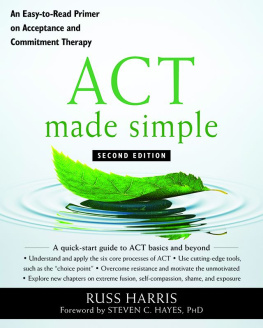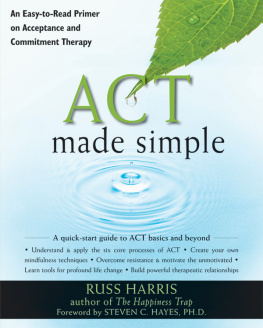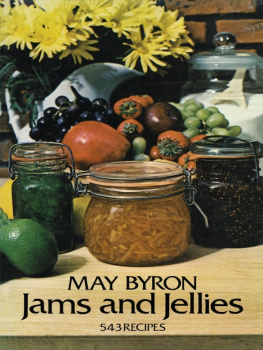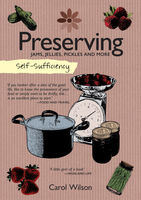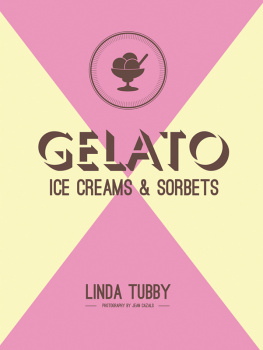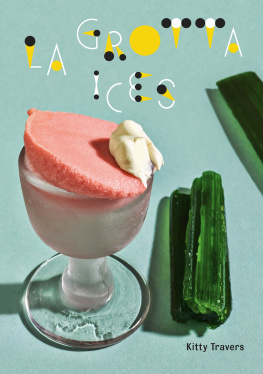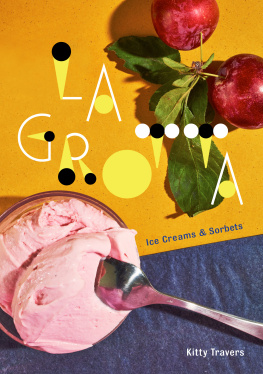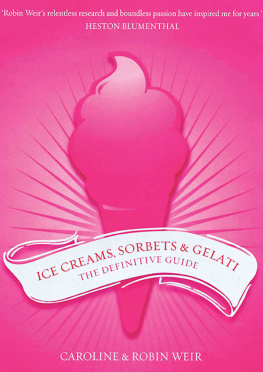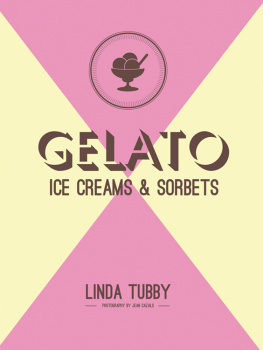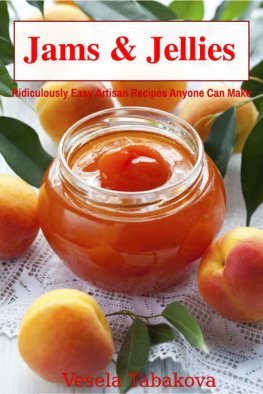
ALL ABOUT ICES, JELLIES, AND CREAMS
The growing concern about the importance of pure and proper ingredients in ice cream and the rediscovery of the joys of jellies and gelatin desserts of all kinds has prompted the reissue of this rare classic text. Written by the authors specifically to remind readers of the unique and inimitable delights that are only to be achieved by using fresh fruits and juices, syrups, liqueurs and creams, it shows what a delicious variety of iced treats were once widely available, and can still be made quickly and easily today. The books begins with an exceptional selection of water ices as sorbets were once known - lime, tangerine, apple, mille fleur, pistachio, white raspberry, muscat and many more. Sorbets are increasingly popular, both for their clear taste and the fact that they are fat free. Then comes a section on granitas of a very sophisticated kind - roman punch, rum punch and a sensational dry sherry granita. Section II starts wth cream ices of both kinds - those that use cream and those that have a custard base. Among the enticements on offer are raspberry and red currant ice cream, green tea ice cream and a luscious almond praline cream ice. Iced souffles come next including caramel and the aptly-named souffle des anges, a heavenly confection of maraschino and orange-flower. Bombes feature next, with instructions on how to prepare such forgotten delights as Pompadour Bombe (coffee cream, strawberry cream, lemon water ice, tangerine water ice) and the irresistible Harlequin Bombe (green chartreuse cream and orange water ice). From the cold charms of ices the book moves on to the cool blandishments of jelly. The maraschino, cassis and rose jellies, elegant vanilla and coffee jellies and wonderful fresh fruit jellies to while the summer away - grape, cherry, peach, apricot and white currant. Next come the jellied creams, justly beloved by the Victorians - succulent nectarine cream, cantaloupe melon cream, mirabel cream, mulberry cream, greengage cream and many more. Then come the liqueur creams - chartreuse both green and yellow, pink maraschino cream, chestnut and caramel creams perfect for winter and regal Victoria cream studded with jewel-like glace fruits. The book continues with a section on jams, preserves and compotes, concluding with a section on wine cups and fruit beverages including refreshing cherryade, mille fruitade and the ravishing Chianti cup - a holiday in a glass. Full directions are given for all recipes, and there is a detailed index. Affordable home ice cream making machines are now widely available, and for the creams and jellies, no equipment is required except for a fridge. So buy this book, and rediscover the lost world of ices, jellies and creams.
ALL ABOUT ICES, JELLIES, AND CREAMS
HENRY G. HARRIS
S. P. BORELLA
First published in 2002 by
Kegan Paul International
This edition first published in 2010 by
Routledge
2 Park Square, Milton Park, Abingdon, Oxon, OX14 4RN
Simultaneously published in the USA and Canada
by Routledge
270 Madison Avenue, New York, NY 10016
Routledge is an imprint of the Taylor & Francis Group, an informa business
Kegan Paul, 2002
Transferred to Digital Printing 2010
All rights reserved. No part of this book may be reprinted or reproduced or utilised in any form or by any electronic, mechanical, or other means, now known or hereafter invented, including photocopying and recording, or in any information storage or retrieval system, without permission in writing from the publishers.
British Library Cataloguing in Publication Data
A catalogue record for this book is available from the British Library
ISBN 10: 0-7103-0724-1 (hbk)
ISBN 13: 978-0-7103-0724-8 (hbk)
Publisher's Note
The publisher has gone to great lengths to ensure the quality of this reprint but points out that some imperfections in the original copies may be apparent. The publisher has made every effort to contact original copyright holders and would welcome correspondence from those they have been unable to trace.
DEDICATION.
To
T. Percy Lewis, Esq.,
(of Malvern),
Our
Very dear Friend and Colleague,
who shares our ideals, and dreams our dreams,
This Book is Dedicated.
Do we sleep, do we dream, or is visions about?
Is our trade education a failure,
Or is Confectionery played out.?
(With Apologies to the late Bret Harte.)
A FOREWORD.
It is a very unsatisfactory reflection in an age when progress generally is evidenced on all sides and a widespread information reaches nearly all classes, that so many confectioners, if they do not actively assist in the consistent depreciation of the quality of their products, at least passively acquiesce. Ices have suffered greatly in this way, and all kinds ot sweetened flavoured farinaceous substances taken the place of the proper ingredients. An examination of the so-called cream ices, or ice-cream, to use the general, but inaccurate title, made by the vast majority of sellers would clearly demonstrate the fact. Of course, there are fine ices still made by confectioners, but only by a small minority, the bulk of the high-class trade being in the hands of the large hotels and restaurants.
To assist in an awakening, and lest it be forgotten that fruit juices and cream are still available and are outside and beyond imitation, the Section devoted to the making of ices has been written, and it is earnestly hoped, may have an influence for good with thinking men.
A high standard for Jellies and Moulded Creams is equally important, and will, if maintained, justify itself by results.
Good and suitable Jams are an essential in every confectionery workshop, and can be made by each user at a lower price than he can obtain a corresponding quality elsewhere. The difference of advantageous buying by the wholesaler, although considerable, does not represent his necessary profit.
The preservation of fruits, especially those bottled in water or light syrup, is almost equally important, and can be undertaken at a time when most confectioners are not very busy, and time can well and profitably be devoted to the work.
Every formula in the various sections has been carefully balanced and tested ; nothing has been taken for granted : and nothing included unless it was within the actual experience of the writers.
A word as to nomenclature.An attempt has been made in part to adhere, as far as possible, to properly descriptive titles. Exceptions to this rule occur in the case of well-known (even if inaccurate) titles which have occasionally been retained. The titles of the moment (a la, this or that) which appear on so many menus have been ignored. An example of this type, which is an exception to the given to-day and forgotten to-morrow rule, is Peches a la Melba, for which one of the really great chefsM. Escoffieris responsible. It is composed of two portions of vanilla cream ice, between which is sandwiched a layer of halves of peaches masked in raspberry conserve or sweetened and reduced raspberry juice. Good as this dish is, its title is complimentary, not descriptive.
Nothing will ever prevent this method of naming dishes, and there is no reason why it should not continueexcept its multiplied confusion.
Our desire is to be helpfulnot only to individuals, but to our trade as a whole. It is, however, to the younger members that we hope chiefly to appeal, for with them lies the trades future. Those older ones, deeply set in their wicked ways, are largely past praying for. Even a few of these may perhaps be converted, and there is more joy over one sinner that repenteth than over ninety and nine just men.





